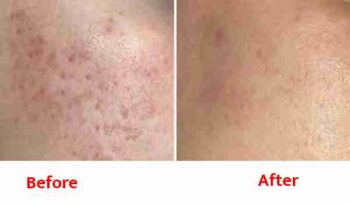Is Aluminum Cookware Safe? The Truth You Need to Know
Aluminum cookware is everywhere—it’s affordable, lightweight, and heats up quickly. But have you ever wondered if it’s actually safe? With concerns about aluminum leaching into food and its potential health risks, many home cooks are second-guessing their cookware choices.
So, what’s the truth? Should you toss your aluminum pans or keep using them? Let’s dive into the science, risks, and safer alternatives so you can cook with confidence.

How Aluminum Leaches into Food (And When You Should Worry)
Aluminum is the third most abundant element on Earth, naturally present in food, water, and even the air. On average, adults consume 7–9 mg of aluminum daily through food sources alone, according to the World Health Organization (WHO).
However, cookware can add even more aluminum to your meals, especially under these conditions:
🔥 Cooking acidic foods like tomatoes, vinegar-based dishes, and citrus sauces
🔪 Using scratched, worn, or uncoated aluminum cookware
🔥 Cooking at high temperatures for prolonged periods
Studies show that aluminum leaching varies. For example, a study published in the International Journal of Electrochemical Science (2017) found that aluminum levels increased up to 378% when acidic foods were cooked in uncoated aluminum cookware.
Does This Mean You’re at Risk?
For most people, small amounts of aluminum exposure aren’t harmful—your kidneys help flush out excess aluminum. However, long-term accumulation could pose health concerns, particularly for individuals with kidney disease or those exposed to high aluminum levels regularly.
Health Risks: Does Aluminum Cause Alzheimer’s?
One of the biggest concerns about aluminum exposure is its possible link to Alzheimer’s disease. Decades ago, some studies found elevated aluminum levels in the brains of Alzheimer’s patients, leading to widespread fear.
However, more recent research, including a 2020 review in the Journal of Alzheimer’s Disease, suggests that aluminum exposure alone is unlikely to cause Alzheimer’s. While high aluminum levels may contribute to cognitive decline, they are not the sole cause.
Other health concerns linked to excessive aluminum exposure include:
- Neurotoxicity (potential brain and nerve damage)
- Bone disorders (interfering with calcium absorption)
- Kidney disease (aluminum buildup in those with poor kidney function)
So, should you panic? No. But should you minimize unnecessary exposure? Absolutely.
Anodized Aluminum vs. Regular Aluminum: Is It Safer?
If you love aluminum cookware but want a safer option, anodized aluminum is your best bet. Here’s why:
✅ Anodization creates a protective layer that prevents aluminum from leaching into food
✅ More durable and scratch-resistant than regular aluminum
✅ Non-reactive, making it safer for acidic foods
Studies show that anodized aluminum cookware releases almost no aluminum, making it a much safer alternative for everyday cooking.
The Best Safer Alternatives to Aluminum Cookware
If you’d rather ditch aluminum altogether, here are healthier, non-reactive alternatives:
- Stainless Steel – Durable, non-toxic, and ideal for searing, boiling, and frying
- Cast Iron – Naturally non-stick when seasoned, plus it adds iron to your diet
- Ceramic – 100% non-toxic and perfect for slow cooking
- Glass – Best for baking and food storage (zero leaching!)
- Carbon Steel – A lighter alternative to cast iron, great for high-heat cooking
How to Use Aluminum Cookware Safely
Not ready to say goodbye to your aluminum pots and pans? Follow these tips to minimize risk:
✔️ Avoid acidic foods (tomato sauce, citrus, vinegar-based dishes)
✔️ Don’t use scratched or worn aluminum cookware (it leaches more aluminum)
✔️ Switch to anodized aluminum for a safer option
✔️ Use non-metal utensils (wooden or silicone) to prevent scratching
✔️ Never store food in aluminum containers—use glass or stainless steel instead
Final Verdict: Should You Keep or Ditch Aluminum Cookware?
The bottom line: Regular aluminum cookware can leach aluminum into food, but for most people, the exposure is minimal and not a serious health risk. However, if you’re concerned, switching to anodized aluminum or safer alternatives is a smart move.




